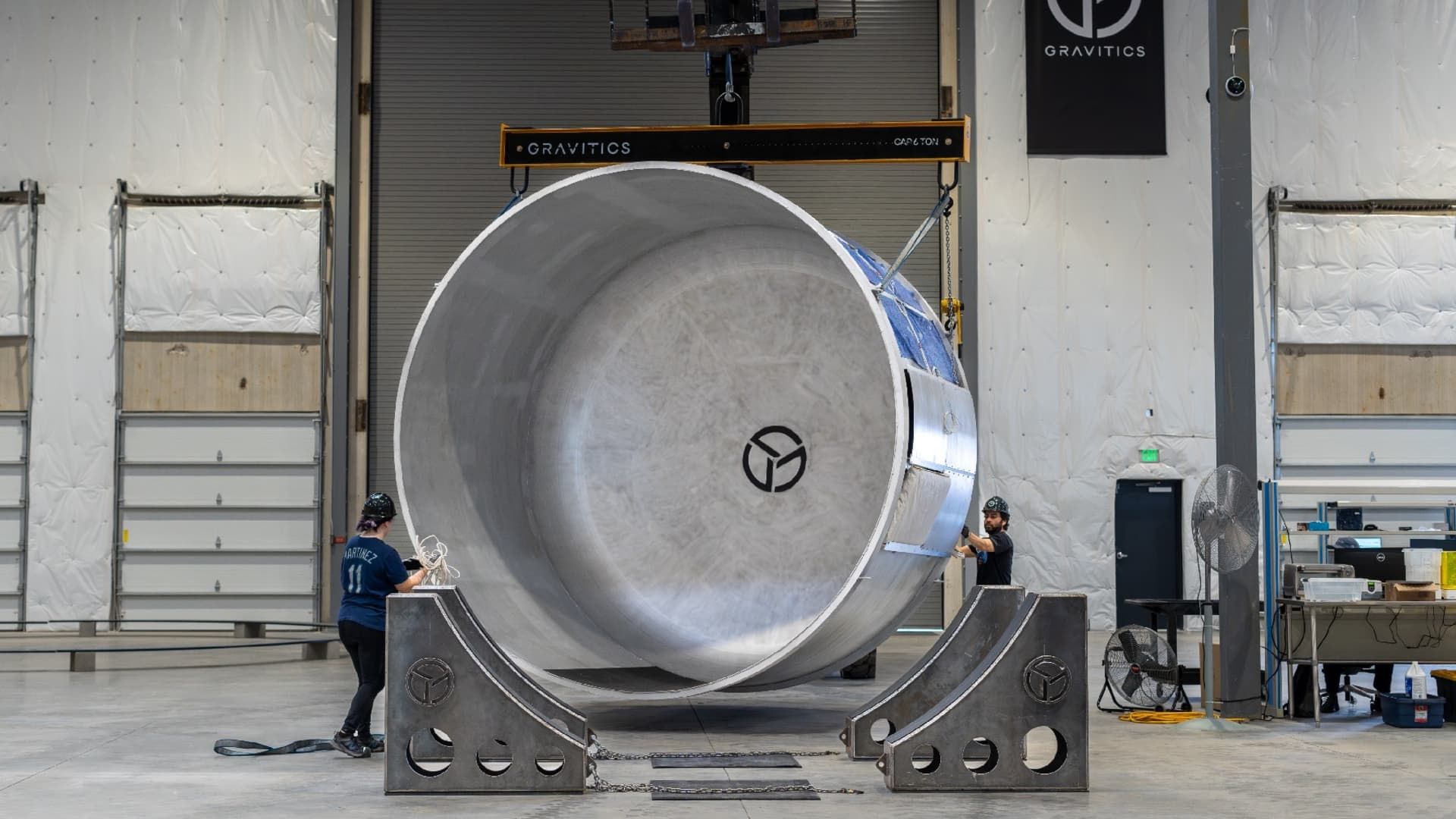A pioneer in the design of the 4-meter space station module Gravitics is using to develop manufacturing and assembly methods.
Gravity
Washington-based startup Gravitics has signed a $125 million contract to expand Axiom Space's planned space station, the latest deal in the burgeoning private market for orbiting habitats.
“Working with the station operator who will have the hardware in orbit very soon is an exciting development,” Gravitics CEO and founder Colin Doughan told CNBC.
Axiom is one of several companies building private space stations as NASA plans for the International Space Station to finish its time in orbit. Axiom already has modules of its space station under construction by Italian aerospace contractor Thales Alenia. The Gravitics order adds another “pressurized spacecraft” that would dock with Axiom’s station after its planned launch in two years.
The deal between Axiom and Gravitics, founded in 2021, is the startup's largest yet. Gravitics had already raised a total of $20 million in venture funding with the aim of making its mark as a private space station manufacturer.
Sign up here to receive weekly editions of CNBC's Investing in Space newsletter.
The nearly 50-employee company, based in a suburb north of Seattle, aims to provide space station modules (actually, the building blocks of in-orbit habitats) as a plug-and-play product line that can launch on a variety of rockets, whether those currently flying, like SpaceX’s Falcon 9, or future behemoths like Blue Origin’s New Glenn.
The space station modules Gravitics is designing range in diameter from 3 meters (9 feet) to 8 meters (26 feet). The largest module, which the company says will have the “largest interior volume in a stand-alone spacecraft,” is called StarMax, a name inspired by SpaceX’s giant Starship rocket.
“We started looking at Starship and said, 'Someone's going to maximize that payload volume,'” Doughan said.
Currently, NASA’s Commercial LEO Destinations (CLD) program has been awarding development contracts to companies building space stations in anticipation of the intentional destruction of the ISS later this decade. Axiom was the first to win a NASA contract to build space station modules, and Gravitics would be connecting its spacecraft later this decade.
But the Gravitics deal is not exclusive, Doughan said.
“We hope to be on several teams during the [second phase of CLD]not as the main one [bidder] because we have no interest in operations… But I do anticipate that you will begin to see some of the architectures that reflect some [of our space station modules] “It will be incorporated into some of these designs in the future,” Doughan said.
Gravitics has been working on prototypes and testing key parts, such as the propulsion system and prototype pressure test modules. Doughan said Gravitics will send some of its components to the International Space Station later this year for testing and plans to launch a subscale spacecraft in 2026.
A propulsion system test at Gravitics' facility in Marysville, Washington.
Gravity
“We're a company with a large inventory of hardware, so we build at the same time we finalize the design,” Doughan said.
The company has signed an agreement with NASA on new approaches to testing large spacecraft, as well as an early development contract with the Space Force. The latter contract, Doughan stressed, represents Gravitics working “with those customers who are ready to buy.”
“The Space Force budget is already growing faster than NASA's, and that's not going to stop,” Doughan said.
The Axiom deal is a catalyst for Gravitics' growth, Doughan said, as the company plans to double its headcount in the coming months and launch a new round of fundraising.










